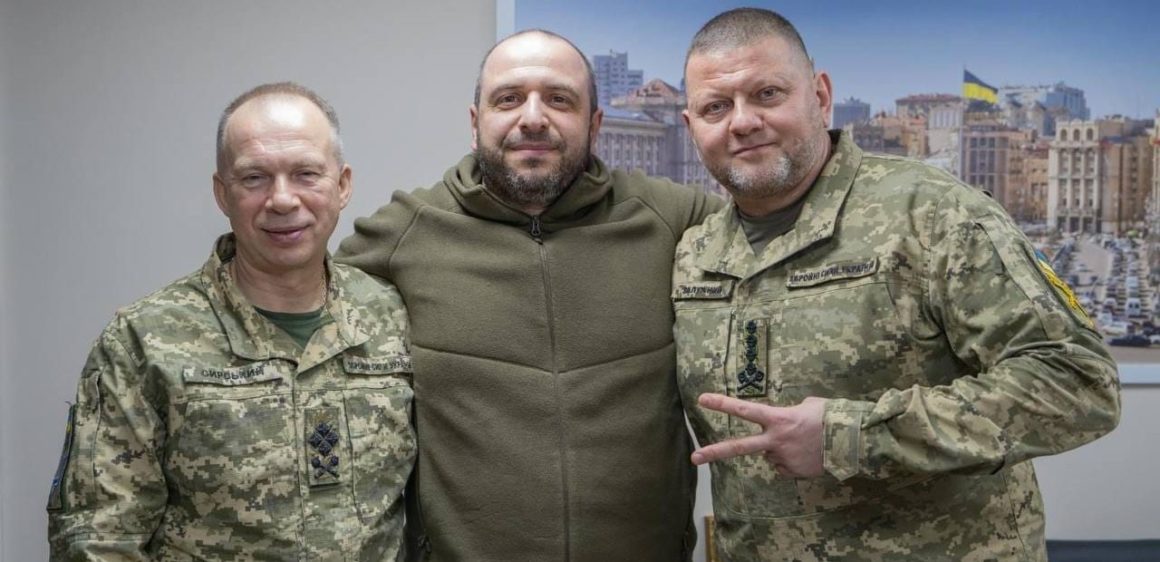On 8 February, Ukrainian President Zelenskyy made the announcement that seemed inevitable: he sacked Ukraine’s Commander-in-Chief Valeriy Zaluzhnyi, replacing him with General Oleksandr Syrskyi.
Rumors about a brewing conflict between Ukraine’s top leaders were swirling for months, escalating on 29 January in a botched-up attempt to fire the highly popular Zaluzhnyi. Then, multiple sources reported that Land Forces Commander Syrskyi and spy chief Kyrylo Budanov were tapped to replace Zaluzhnyi yet refused.
Eventually, Zelenskyy chose Syrskyi and now announced that “a new management team is taking over the leadership of the Armed Forces of Ukraine."
What did Zaluzhnyi achieve, what did he not manage to do, and can Syrskyi break the stalemate at the front? Euromaidan Press talked to three Ukrainian officers, a sergeant, a seasoned army volunteer and sieved through the latest Ukrainian analyses to understand what’s next.
Why did Zelenskyy fire Zaluzhnyi?
Most sources who anonymously spoke to media concurred that the conflict between the president and the general emerged in 2022 amid Zelenskyy’s fears of the rising popularity of Zaluzhnyi, whose 88% trust rating now exceeds the president’s by a whopping 26%. The two also had differences in approaches to the war: while Zaluzhnyi insisted on more stringent mobilization measures already in 2022, Zelenskyy has pushed back against the general’s requests, fearing a blow to his popularity. Zaluzhnyi’s surprise “stalemate” essay in The Economist further rankled Zelenskyy, who pushed back against the narratives.
However, there is more to it than Zelenskyy’s fears of political competition and personal rivalry. As commentator Denis Trubetskoy pointed out, there had to be very good reasons for Zelenskyy to fire his commander amid a war with the largest country in the world, thus opening the way to politics for the beloved Zaluzhnyi.
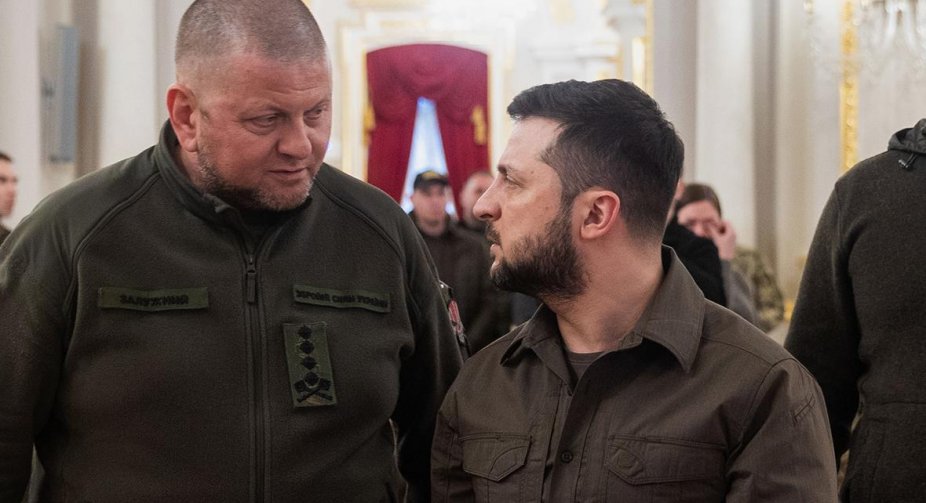
The stalemate at the front is one of those reasons. Relations between the two Z’s started souring irreversibly when Ukraine’s 2023 counteroffensive failed to gain ground. Although Zelenskyy is being criticized for promoting inflated expectations about the failed operation that was expected to cleave Russian defenses in half and open a path to the Azov Sea, a source close to the President’s Office told RBC that their optimistic view was actually formed by forecasts of Ukraine’s generals.
Zaluzhnyi also fell out of favor with the Pentagon after Ukraine made it clear that American military planners had nothing to offer Ukraine advice-wise, a White House advisor told Politico. Arguing that the US had never fought wars of this type, Ukraine rejected the Pentagon’s suggestions such as concentrating the attack in only one direction and insisted on starting the offensive later than was suggested.
Ex-Defense Minister Zagorodnyuk earlier told Euromaidan Press that Ukraine’s quips against US advice do hold water, as drones on the battlefield have made old doctrines irrelevant, and American opinions were limited by a near absence of officers on the ground. However, the stagnant 2023 frontline amid losses and heavy fighting did lead to a buildup of tension - and deterioration of trust between the president and his top general.
What Zaluzhnyi achieved
“Zaluzhnyi was the man who saved Kyiv,” sniper-theologian Yuriy Chornomorets, who took part in the defense of the Ukrainian capital and now fundraises for and prepares sniper groups on all directions of the front, told Euromaidan Press.
According to him, had Ukraine’s political leadership dedicated two brigades near the Chornobyl zone ahead of Russia’s invasion on 24 February 2022, the civilian massacres in Bucha and Irpin could have been avoided, as the Russians would be stuck in the swamps before the Teteriv River to the north of Kyiv.
However, as Zelenskyy and his entourage rejected the possibility of a full-blown war, brigades were sent from the Kyiv Oblast to the front in the east, where an escalation was thought possible, leaving the entire region exposed.
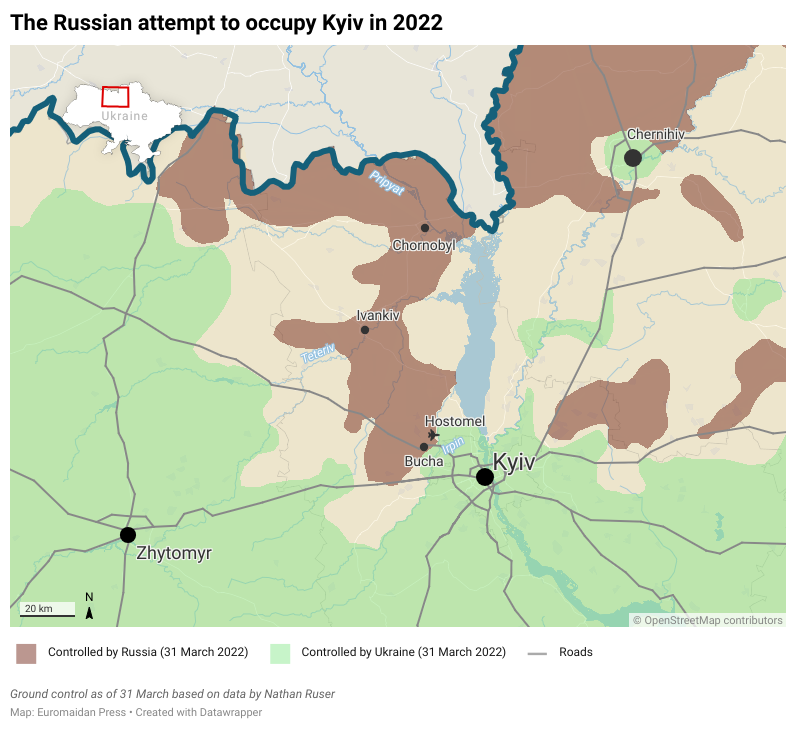
“The Teteriv River was covered only by small groups of 15 paratroopers and 100 paratroopers in Ivankiv, all neutralized by Russians. The strategically important Hostomel airfield was defended not by a National Guard brigade but by a wide variety of small detachments. The only thing that saved Kyiv is that the 72nd brigade was not sent to the East, as Zelenskyy and Yermak wanted.
Zaluzhnyi, under false pretenses, delayed the 72nd brigade, and it became the core of the Ukrainian defense along the Irpin River. Also, before the major invasion, Zaluzhnyi paid great attention to training brigades for rapid marches – and this allowed the 80th Brigade to quickly find itself at the tip of the Russian blow. Zelenskyy should be grateful to Zaluzhnyi for saving Kyiv alone,” Chornomorets details.
In general, Ukraine’s army did not brace itself to repel the invasion due to the political leadership’s insistence there was no threat of war. Nevertheless, Zaluzhnyi gave orders to deploy some troops on the eve of war in defiance of Zelenskyy’s position, enabling them to prepare.
Ukraine’s dogged fight against odds and retreat of the Russians from Kyiv was one of the reasons for Zaluzhnyi’s skyrocketing popularity: he became the symbol of Ukraine’s resistance, military journalist Yuriy Butusov says. And one of the reasons for this initial Ukrainian success is Zaluzhnyi’s absence of micromanagement, a highly unusual trait for the army.
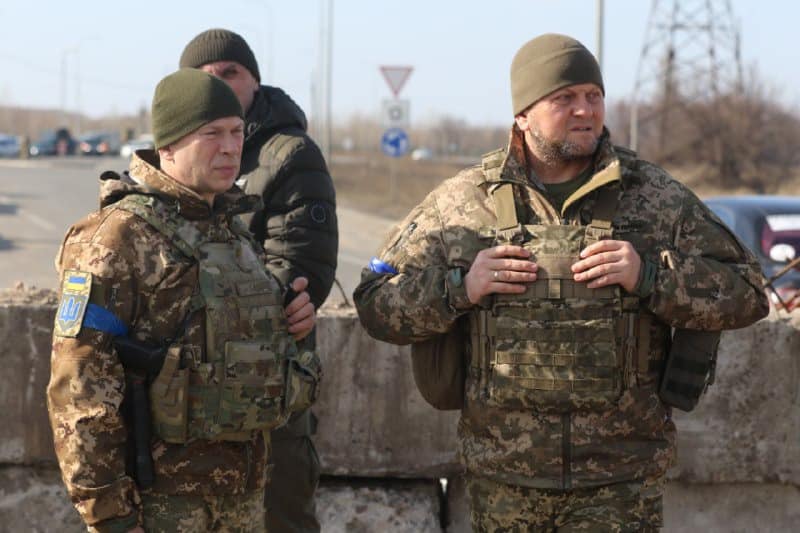
“His great merit is that he did not intrude too much, especially at the start. The commanders could make independent decisions without fear of punishment, and this created a huge flexibility that gave Ukraine the advantage in the first months, despite the Russians’ surprise and artillery advantage,” an officer and instructor with combat experience in the Kharkiv operation and defense of Bakhmut told Euromaidan Press.
Another achievement of Zaluzhnyi is the overall progress of the army over two years of war with Russia.
“People usually don’t notice slow changes, and they are then surprised, ‘oh wow, the child is all grown up.’ It’s the same with the military. I notice the changes, and they’re really huge,” says an officer of the General Staff troops.
“The army has actually increased fivefold. This is a huge organism that could have fallen apart organizationally, as in our history, we never had a model of coordinating such a machine at all. It should have been very clumsy, but it was not. On the contrary, when the initiative was given to commanders at the operational and even tactical levels, our army became much more effective, unlike the Russian army, which has the problem of over-centralization and where everything comes down to the general,” the officer says.
“In terms of equipment, weapons, tactical medicine, it is absolutely heaven and earth. I read the Russians’ guidelines; it is just a bad version of tactical medicine from WWII, which they keep promoting. Our army and the Russian one are now two different armies,” he notes.
Zaluzhnyi’s soft, agreeable character led to him having authority with both file-and-rank soldiers and commanders, two officers told Euromaidan Press. Inheriting a fragmented, disorganized system, he managed to build a system of institutional trust. As Yuriy Butusov puts it, “Not everything was optimal, but there was some consistency, logic, and trust that enabled it to operate.”
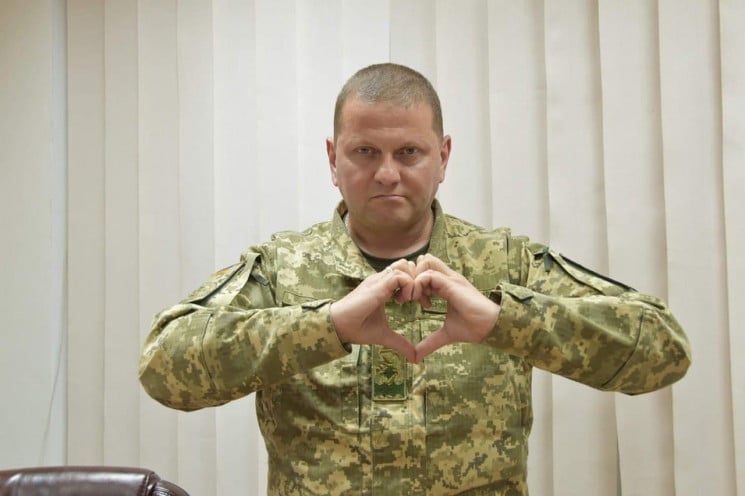
“To coordinate such a machine and make it effective in a war we've never seen is difficult. As the person who actually coordinated this whole organism, this is largely Zaluzhyi’s credit,” an officer notes.
However, the initial flexibility that gave Ukraine success in the first days of war was lost. According to Yuriy Butusov, this is because Zelenskyy started intruding into army affairs, fragmenting the army management. Several verticals of power were created, bypassing Zaluzhnyi. Zelenskyy appointed Special Forces leaders without consulting Zaluzhnyi and gave direct calls to the Air Forces, paratroopers, logistics forces, Butusov details. The military journalist believes that this absence of a full delegation of power to the Commander-in-Chief and external intrusions created conflicts and degraded the situation at the front.
“Zaluzhnyi fought in extremely difficult conditions without full support from the state leadership. Only when it was impossible to get through to the authorities in Ukraine with ideas for forming new units or the need for high-quality updating of the Defense Forces, Zaluzhnyi wrote articles directly asking Western allies for help or make it clear to everyone what his vision of the course of the war was,” sniper patron Chornomorets concurs.
In one article in The Economist, Zaluzhnyi acknowledged that the war is at a stalemate and said that Ukraine needs technology to win the war.
In the second, “swan song” article in CNN ahead of his imminent dismissal, Zaluzhnyi said that Ukraine needs to rely on itself and drones in 2024 amid unstable aid and commitments.
- Read our article with ex-Defense Minister Zagorodnyuk, where he unpacks Zaluzhnyi’s strategy to win the war: Ex-Minister Zagorodnyuk: Ukraine can defeat Russia, but West must commit to total victory
What Zaluzhnyi is criticized for
His strong points aside, Zaluzhnyi was a cabinet general and was rarely seen at the front.
“On the one hand, it is a plus because [such a general] can keep his cool. On the other hand, he can start harboring illusions when the war gets too monotonous and one needs to understand all the details,” an officer who participated in the defense of Bakhmut said.
Illusions and a detachment from reality are some of the reasons for the failed counteroffensive: brigades from newbies trained abroad that had not yet smelled gunpowder were expected to make a breakthrough in the Russian defense, the officer added.
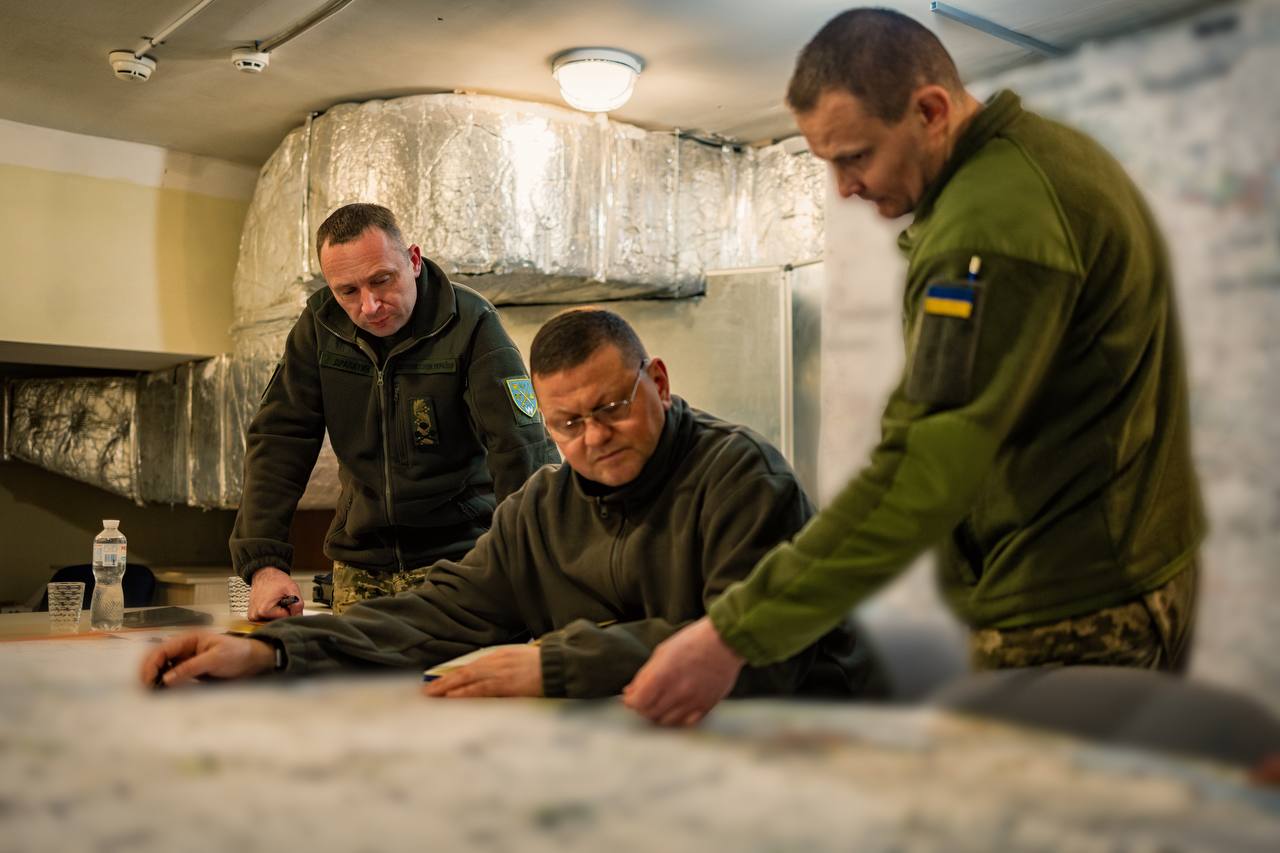
“Zaluzhnyi failed to build a unified command of all troops and reform the army, failed to protect the army from the terror of military bureaucrats, which month by month weakened the army more and more. Zaluzhnyi failed to secure maximum state support for the defense forces from the state. And it turned out that the rear was not providing adequate support to the army – and this is now the main reason for the difficulties at the front,” Yuriy Chornomorets tells Euromaidan Press.
Apart from the bureaucracy, which demanded piles of papers for every cough, the army under Zaluzhnyi was riddled with injustice.
“In my detachment, only those who were ‘inconvenient’ were sent to the front, whereas ‘favorite’ officers who started the war as junior lieutenants are now majors without ever seeing the war,” an officer said.
Moreover, commanders faced no scrutiny over how many subordinates they lost in operations. “If you see that one has many more privates killed than another under the same conditions, an audit should be conducted. Maybe he can’t be a commander at all,” the officer stresses.
Currently, only directions where civilians managed to secure participation face such oversight, while solely military processes are opaque. “Apart from the commanders, we need an audit of generals and colonels. If he doesn’t know the frontline, he can’t understand Ukrainians. He doesn’t listen. The army is simply virtual, starting from the colonel up, and it’s not clear what all they do,” the officer said.
Indeed, bad personnel decisions are a point of criticism for Zaluzhnyi, Butusov says. Some generals he appointed were questionable, and others seemed simply unfit, but Zaluzhnyi with his soft style tried to give everyone a chance to stay in the system.
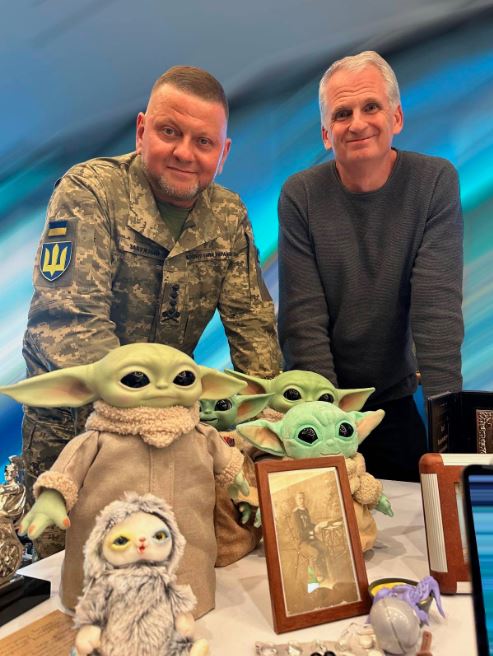
Nevertheless, news of Zaluzhnyi’s dismissal hit the army hard.
Trending Now
“The personnel changes aren’t the problem. There was no valid explanation of what was wrong, no arguments, no nothing; this creates fertile ground for speculation that Zaluzhnyi simply became too popular. The absence of rationale is demoralizing. Many in the army now want to simply crawl to the cemetery,” another officer said.
Posts of Ukrainian military personnel on social media range from frustration to despair.
“Everybody trusted Zaluzhnyi,” another officer says. “If it was him ordering or asking to hold a position, then everybody would know there was some idea behind it. If it was Syrskyi, then it is some crazy defense for the sake of defending,” yet another officer says, invoking a contrast between the months-long controversial Syrsky-led operation to defend Bakhmut, and the flexible defense at the dawn of the Russian invasion when Ukrainians easily abandoned ground to stretch out a column of Russian tanks beyond their capacity to refuel.
However, Syrskyi was also in charge of the defense of Kyiv, the lightning-fast liberation of Kharkiv oblast in 2022, and the Joint Forces Operation in Donbas before Russia’s full-scale invasion, where his track record is fine.
Despite Zaluzhnyi’s popularity in the public imagination, his field track record is also mixed. After abandoning armored attacks after the first days of heavy losses in the 2023 counteroffensive, Ukraine switched to infantry assaults to dredge through Russian minefields under drone-filled skies. The subsequent meager advances near Robotyne came at a great price; however, these losses are not pinned on Zaluzhnyi in the public imagination.
Neither are his amendments to legislature that boosted the power of commanders over soldiers, entrenching the former’s lack of responsibility for expending lives at the frontline. “It is easier to kill your commander than file a complaint against him,” one sergeant says.
In contrast, the 2022 plan to regain Kherson with minimal losses by destroying Russian ground communication lines was also authored by Zaluzhnyi. Then, Ukraine managed to regain the whole west bank of the Kherson Oblast with minimal losses.
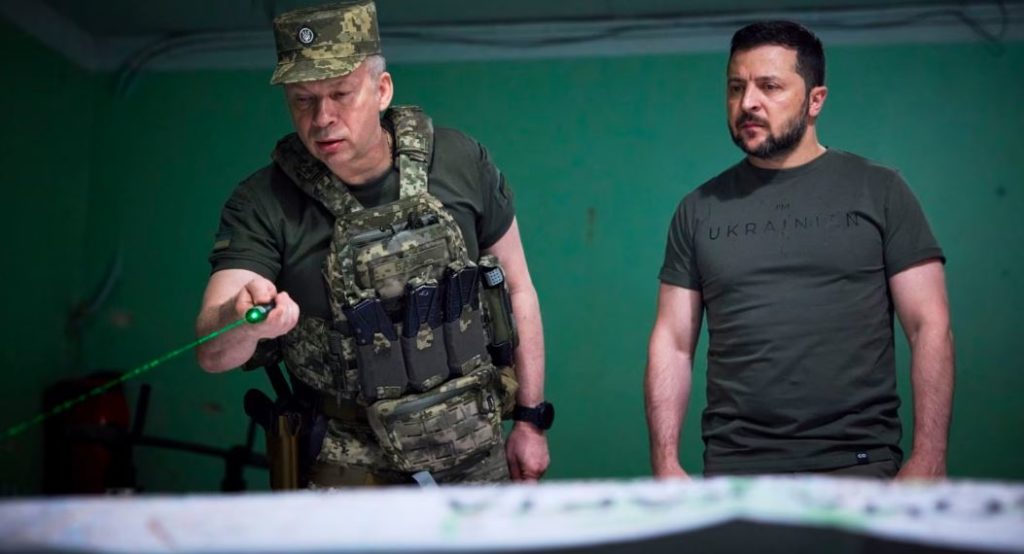
What Syrskyi is known for
Born and trained in Russia, Oleksandr Syrskyi is a seasoned general who gets up at 5 AM, works out daily, and does not shy away from the most dangerous frontline positions: “I have seen him 10 times in places where artillery is pounding,” the officer who took part in the defense of Bakhmut says.
Promoted from the position of Land Forces Commander, he formed a pool of supporters, mostly young brigade commanders, and is bringing them into the army command, the officer says. “Somewhere, he controls them, but mostly they fight independently."
While Zaluzhnyi had a hidden standoff with the Ukrainian president, Syrskyi can be expected to be more loyal to the President’s Office, as he simply does his job to fight and does not engage in political tradeoffs. However, this risk is somewhat mitigated by the incoming brigade commanders who would block political meddling in army affairs.
The commanders that Syrskyi has already brought in – Andriy Hnatov, Mykhailo Drapatyi, Ihor Skybiuk, Pavlo Palisa, and Vadym Sukharevskyi – are “encouraging,” journalist Butusov says. They are well-known and professional, having proven themselves in battle, “worthy of high positions.” The incoming commanders will fully replace Zaluzhnyi’s team.
What arguably raises the most concern with Syrskyi is his reputation for sparing no human lives for the sake of achieving a breakthrough in the place of the arrow on the map. "Zaluzhnyi is out, the 'butcher' is in," wrote Politico, commenting on the appointment of Ukraine's new commander-in-chief.
The ill fame was mostly earned during Syrsky's oversight of the ten-month-long defense of Bakhmut, where Ukraine ground down much of Russia's formidable Wagner PMC, but at the price of great losses amid suboptimal planning.
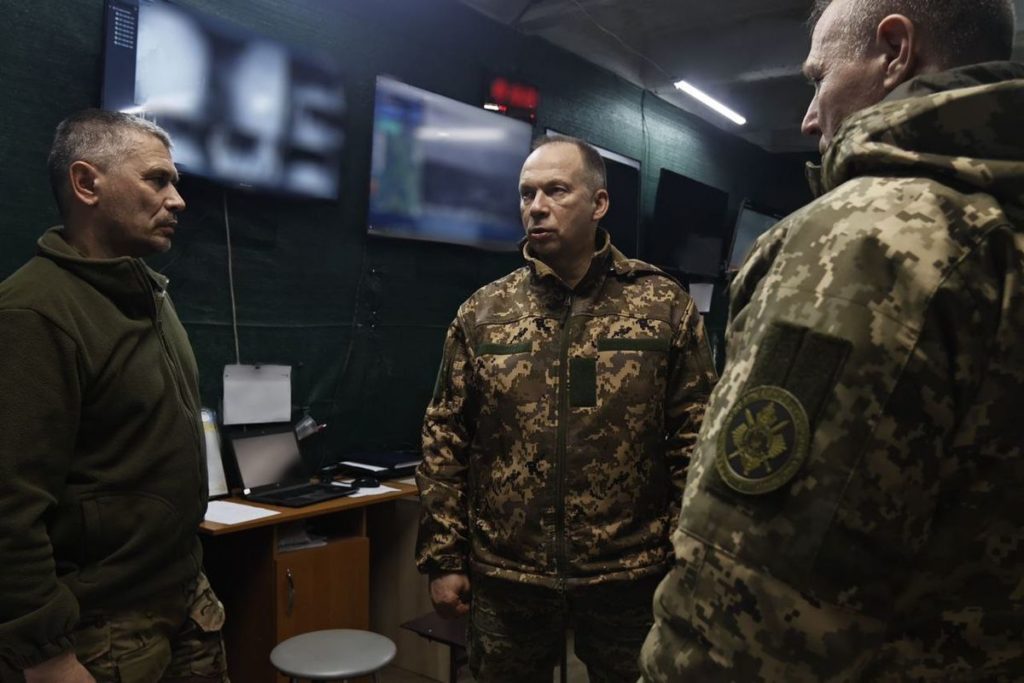
One officer who took part in the defense of Bakhmut pushed back against this accusation. While insisting Ukraine should hold on, the general did not issue any commands like “stand until death” in meetings. “But the Russians are going to spread this narrative,” the officer adds.
Another officer says that the moniker is justified: in the defense of Bakhmut, the brigades whose commanders were from Syrskyi’s pool were given preferential treatment, while those whose commanders were “Zaluzhnyi’s” were not spared. He sent soldiers to pointless assaults that gave only slight tactical gains without artillery support, leading to senseless death.
“Everyone loves Zaluzhnyi for his humanity; Syrskyi and Budanov are criticized for lack of empathy for officers and privates. There is a fear in the army that the war will continue as it is today, but with significantly more losses, and the tasks will be accomplished at any cost.
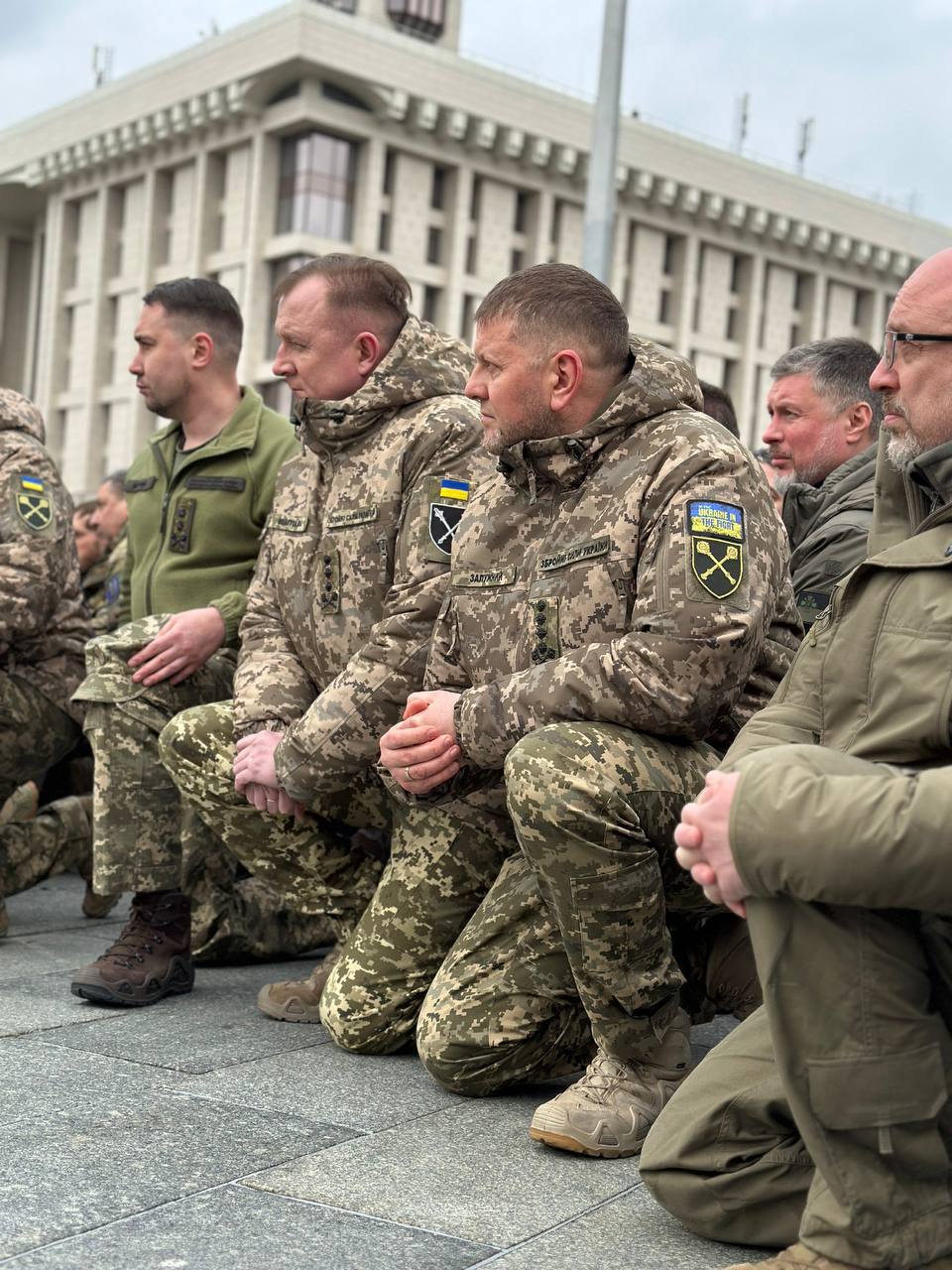
At the same time, Ukraine has a chance to turn the situation around if Syrskyi directs his iron energy to provide the army with everything it needs, mobilizing all the capabilities of the defense industry, building real lines of defense, mobilizing and training not 500,000 by 2024, but millions.
Like Zaluzhnyi, Syrskyi has had unsuccessful personnel decisions, and it is very important now whether he will pick adequate people for his team. If Syrskyi's team is chosen not on the principle of loyalty but will consist of the strongest professionals – we can get a strong collective leadership that will successfully replace Zaluzhnyi.
If Syrskyi does not create a ‘dream team’ but will manage everything himself through executives loyal to him – the situation could get much worse. Zaluzhnyi did not want to conflict with anyone and therefore could not transform Ukraine into a unified front-to-rear system. If Syrskyi manages to tune the entire Defense System from the front to the most diverse rear segments, then he has a chance for Victory. The West could support such a holistic system with strong leadership, and this would be the right course of events,” Yuriy Chornomorets says.
The challenges that Syrskyi faces
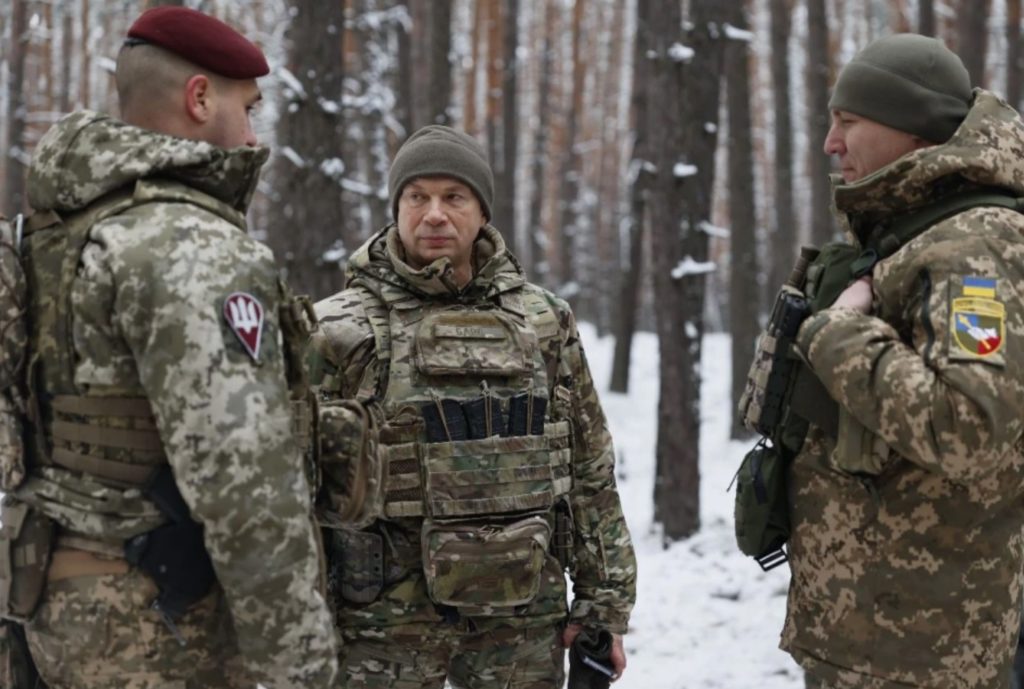
First, the “humane” system of institutional trust that Zaluzhnyi built around himself will be gone. A new one will need to be built in its stead, which is challenging due to Syrskyi’s unpopularity within the army.
Second, Syrskyi inherits a difficult situation at the frontline, where Russian troops make creeping gains with the usual strategy of expending lives – a tolerable loss given Russia’s greater manpower. Ukraine’s mobilization, however, has been delayed due to the political unpopularity of the decision. Frontline troops are worn out, and rotation in many positions is impossible due to the sheer scarcity of troops.
Meanwhile, the chasm between the front and rear is swelling. Sporadic reports emerge of civilians being more afraid of draft committees than of Russian troops, such as a mother and daughter being beaten up by women in west Ukraine’s Kosmach afraid of “spies” from the mobilization center sent to track down their husbands. Against this backdrop, the additional mobilization of 500,000 troops demanded by Zaluzhnyi will be even more challenging without his “fatherly” presence.
Third, Zaluzhnyi leaves behind a fragmented system with no single vertical of power, riddled with political interference. Syrskyi’s success will depend on whether he will secure enough power to lead this system effectively, abandoning his proclivity to micromanagement. Adding to the challenge is the system’s bloated administration (in the words of Butusov, “We have a shortage of soldiers but an excess of headquarters”), which will need restructuring.
Fourth, Ukraine’s success will depend on whether it will be able to mobilize its economy and society to achieve victory. For victory, it must outpace Russia in technological solutions such as drones and electronic warfare and drastically cut down its losses.
The challenges are severe: Russia has gone into overdrive allocating resources to the war, outspending the West’s contribution to Ukraine twofold. Ukrainian frontline troops face a shortage of artillery and badly needed aid faces an indefinite holdup in the US Congress. As Zaluzhnyi wrote, Ukraine must rely on itself, and Syrskyi takes command in the most difficult of conditions.
Last but not least, the phrase "We cannot defeat a large Soviet army with a small Soviet army" has become a common maxim in Ukraine to stress the need to drastically cut losses and become smarter and more effective in the face of a prevailing foe. It remains to be seen whether "Soviet general" Syrskyi is capable of this approach.
“Syrskyi is a suitable candidate to trust if he acts with a professional team and consistently puts pressure on the government and everyone in the country as zealously as he puts pressure on ordinary officers and soldiers, demanding to do everything possible and impossible. If something goes wrong, the Ukrainian Defense Forces also deserve support. After all, under Syrskyi, they will certainly bear even greater sacrifices in the battle with Russia, and with their courage, they have earned that everyone supports them as much as possible.
Now the situation at the front is so critical that everyone who can goes into battle as assault troops, even snipers,” Yuriy Chornomorets says.
Much depends on Ukraine’s allies, who must remember that Ukraine had managed to turn the front around before and can do it again.
“At this critical moment, maximum support is needed. Because a little more of the kind of war we have today – and we lose. And all the countries of the world will remember how Ukraine, which fought heroically, was betrayed at the most critical moment. And no one will consider the West a reliable ally to rely on anymore.
I remember how at the end of the Kharkiv operation, the Ukrainians had a chance to capture Kremmina, a key point in the East, from which Luhansk and Sviatove could be attacked. This would have disrupted the entire Russian logistics in the East and made today's problems near Avdiivka and Kupiansk impossible. My guys entered Kremmina three times, but the weakened Army and National Guard brigades could not develop success and rolled back. They miraculously managed to escape all three times.
If we had had a little more strength, if we had received more Western aid by this early autumn of 2022, the war would have ended by the end of summer 2023. Because there were several such moments, and even now there are some opportunities to turn the front around if Ukraine and the whole world mobilize for victory over modern Nazism, leaving political games aside, which could end in the collapse of the dominant position of Western civilization in the world,” Yuriy Chornomorets, who supplies sniper groups all over the frontline, says.
Correction: this sentence "it became the core of the Ukrainian defense along the Irpin River" earlier had "Teteriv River"
Related:
- Russia outspends West 2:1 in Ukraine war
- Ex-Minister Zagorodnyuk: Ukraine can defeat Russia, but West must commit to total victory
- Ukraine moves to plug loopholes, demand equal sacrifice in mobilization
- Why Ukraine’s counteroffensive failed: WP analysis in 7 minutes
- “Do not despair.” Ex-minister Zagorodnyuk on lessons from Ukraine’s counteroffensive
- Ukrainian theology professor turned sniper tells how to hunt for Russian invaders
- Read our article with ex-Defense Minister Zagorodnyuk, where he unpacks Zaluzhnyi’s strategy to win the war: Ex-Minister Zagorodnyuk: Ukraine can defeat Russia, but West must commit to total victory
- Russia outspends West 2:1 in Ukraine war
- Ex-Minister Zagorodnyuk: Ukraine can defeat Russia, but West must commit to total victory
- Ukraine moves to plug loopholes, demand equal sacrifice in mobilization
- Why Ukraine’s counteroffensive failed: WP analysis in 7 minutes
- “Do not despair.” Ex-minister Zagorodnyuk on lessons from Ukraine’s counteroffensive
- Ukrainian theology professor turned sniper tells how to hunt for Russian invaders

